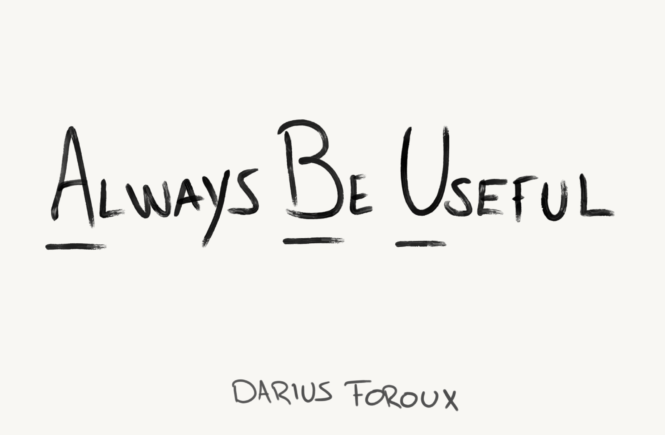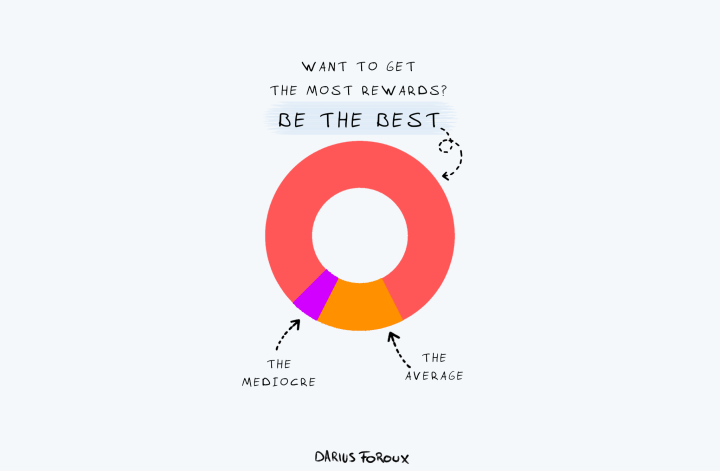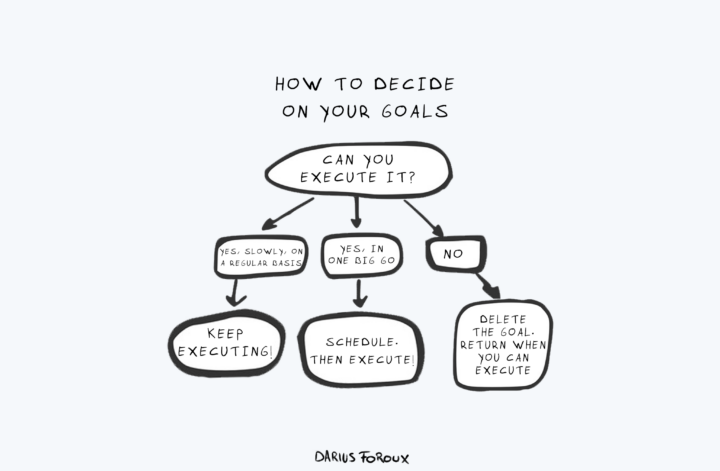For the longest time, I believed that there’s only one purpose of life: And that is to be happy.
Right? Why else go through all the pain and hardship? It’s to achieve happiness in some way.
And I’m not the only person who believed that. In fact, if you look around you, most people are pursuing happiness in their lives.
That’s why we collectively buy shit we don’t need, go to bed with people we don’t love and try to work hard to get the approval of people we don’t like.
Why do we do these things? To be honest, I don’t care what the exact reason is. I’m not a scientist. All I know is that it has something to do with history, culture, media, economy, psychology, politics, the information era, and you name it. The list is endless.
We are who are.
Let’s just accept that. Most people love to analyze why people are not happy or don’t live fulfilling lives. I don’t necessarily care about the why.
I care more about how we can change.
Just a few short years ago, I did everything to chase happiness.
- You buy something, and you think that makes you happy.
- You hook up with people and think that makes you happy.
- You get a well-paying job you don’t like and think that makes you happy.
- You go on holiday, and you think that makes you happy.
But at the end of the day, you’re lying in your bed (alone or next to your spouse), and you think: “What’s next in this endless pursuit of happiness?”
Well, I can tell you what’s next: You, chasing something random that you believe makes you happy.
It’s all a façade. A hoax. A story that’s been made up.
Did Aristotle lie to us when he said:
“Happiness is the meaning and the purpose of life, the whole aim and end of human existence.”
I think we have to look at that quote from a different angle. Because when you read it, you think that happiness is the main goal. And that’s kind of what the quote says as well.
But here’s the thing: How do you achieve happiness?
Happiness can’t be a goal in itself. Therefore, it’s not something that’s achievable.
I believe that happiness is merely a byproduct of usefulness.
When I talk about this concept with friends, family, and colleagues, I always find it difficult to put this into words. But I’ll give it a try here.
Most things we do in life are just activities and experiences.
- You go on holiday.
- You go to work.
- You go shopping.
- You have drinks.
- You have dinner.
- You buy a car.
Those things should make you happy, right? But they are not useful. You’re not creating anything. You’re just consuming or doing something. And that’s great.
Don’t get me wrong. I love to go on holiday or go shopping sometimes. But to be honest, it’s not what gives meaning to life.
What really makes me happy is when I’m useful. When I create something that others can use. Or even when I create something I can use.
For the longest time, I found it difficult to explain the concept of usefulness and happiness. But when I recently ran into a quote by Ralph Waldo Emerson, the dots connected.
Emerson says:
“The purpose of life is not to be happy. It is to be useful, to be honorable, to be compassionate, to have it make some difference that you have lived and lived well.”
And I didn’t get that before I became more conscious of what I’m doing with my life. And that always sounds heavy and all. But it’s actually really simple.
It comes down to this: What are you DOING that’s making a difference?
Did you do useful things in your lifetime? You don’t have to change the world or anything. Just make it a little bit better than you were born.
If you don’t know how, here are some ideas.
- Help your boss with something that’s not your responsibility.
- Take your mother to a spa.
- Create a collage with pictures (not a digital one) for your spouse.
- Write an article about the stuff you learned in life.
- Help the pregnant lady who also has a 2-year old with her stroller.
- Call your friend and ask if you can help with something.
- Build a standing desk.
- Start a business and hire an employee and treat them well.
That’s just some stuff I like to do. You can make up your own useful activities.
You see? It’s not anything big. But when you do little useful things every day, it adds up to a life that is well-lived. A life that mattered.
The last thing I want is to be on my deathbed and realize there’s zero evidence that I ever existed.
Recently I read Not Fade Away by Laurence Shames and Peter Barton. It’s about Peter Barton, the founder of Liberty Media, who shares his thoughts about dying from cancer.
It’s a very powerful book and it will definitely bring tears to your eyes. In the book, he writes about how he lived his life and how he found his calling. He also went to business school, and this is what he thought of his fellow MBA candidates:
“Bottom line: they were extremely bright people who would never really do anything, would never add much to society, would leave no legacy behind. I found this terribly sad, in the way that wasted potential is always sad.”
You can say that about all of us. And after he realized that in his thirties, he founded a company that turned him into a multi-millionaire.
Another person who always makes himself useful is Casey Neistat. For three years he posted a new video about his life and work on YouTube. And in every video, he’s doing something.
He also talks about how he always wants to do and create something. He even has a tattoo on his forearm that says “Do More.”
Most people would say, “why would you work more?” And then they turn on Netflix and watch back to back episodes of the latest TV show that came out.
A different mindset.
Being useful is a mindset. And like with any mindset, it starts with a decision. One day I woke up and thought to myself: What am I doing for this world? The answer was nothing.
And that same day I started writing. For you, it can be painting, creating a product, helping the elderly, or anything you feel like doing.
Don’t take it too seriously. Don’t overthink it. Just DO something that’s useful. Anything.




